The Times says that slaves arriving in 1619 is the date of our “true founding,” not 1776.
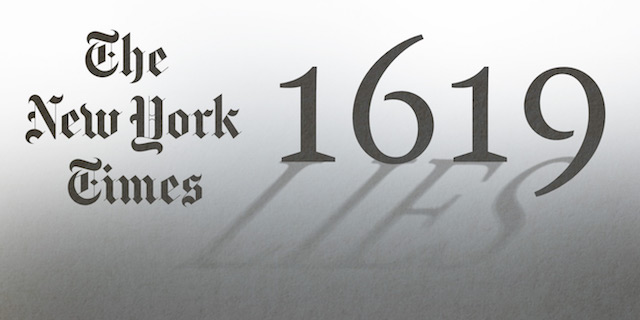 These days it’s hard to find any mention of Donald Trump and Russia in The New York Times. Of course, after the train wreck of Robert Mueller’s testimony, it’s no wonder they dropped that hot potato. But don’t underestimate the leftist zealots at the Times, nor their creativity in trying to ensure that a “racist” Trump doesn’t win a second term. Continue reading
These days it’s hard to find any mention of Donald Trump and Russia in The New York Times. Of course, after the train wreck of Robert Mueller’s testimony, it’s no wonder they dropped that hot potato. But don’t underestimate the leftist zealots at the Times, nor their creativity in trying to ensure that a “racist” Trump doesn’t win a second term. Continue reading

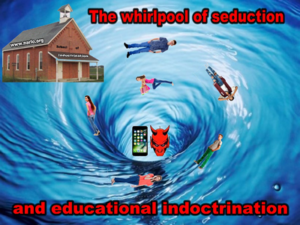 People keep asking, especially those over 70, what the Hell happened to my country? How is it that America spawned the likes of Bernie Sanders, Elizabeth Warren, Cory Booker, Kamala Harris and some gay mayor from Indiana named “Boodugig,” or whatever, running for president? How did the idiot Bill de Blasio, ever become mayor of New York?
People keep asking, especially those over 70, what the Hell happened to my country? How is it that America spawned the likes of Bernie Sanders, Elizabeth Warren, Cory Booker, Kamala Harris and some gay mayor from Indiana named “Boodugig,” or whatever, running for president? How did the idiot Bill de Blasio, ever become mayor of New York?  It is our tradition that the first lecture of the year should be dedicated to our freshmen.* They have newly joined a community whose program of learning centers on the scheduled reading of a preset list of books and on the twice-weekly discussion that takes place in the seminar. They have come to us chiefly because that is what we do here. I have read each of their applications, and I can vouch for the fact.
It is our tradition that the first lecture of the year should be dedicated to our freshmen.* They have newly joined a community whose program of learning centers on the scheduled reading of a preset list of books and on the twice-weekly discussion that takes place in the seminar. They have come to us chiefly because that is what we do here. I have read each of their applications, and I can vouch for the fact.  In a heartbreaking case of complete disregard for parental rights, four-year-old Drake Pardo was illegally taken from his parents by Child Protective Services (CPS) and uniformed police officers on June 20, 2019 in East Texas.
In a heartbreaking case of complete disregard for parental rights, four-year-old Drake Pardo was illegally taken from his parents by Child Protective Services (CPS) and uniformed police officers on June 20, 2019 in East Texas. The world is changing at a dramatic pace. It’s shifting so fast, in fact, that the childhood you remember is vastly different than the one your own kids will experience. This is largely due to the development and saturation of technology in modern society.
The world is changing at a dramatic pace. It’s shifting so fast, in fact, that the childhood you remember is vastly different than the one your own kids will experience. This is largely due to the development and saturation of technology in modern society. As a health economist, I spend my days working with incredibly innovative medical device and biotechnology companies who are commercializing into the healthcare space. By consequence, I’m obligated and prone to think about the financial and economic troubles facing the field of medicine. For seven years I worked for an integrated delivery network and had a seat on both the payer and hospital side of the table and was thereby privy to how all the sausage was made. During those same years, I was laden with a student loan burden that I’d heaped on myself during college and two master’s programs. The consequence of which was 1) a fantastic education in neuroscience, bioimaging, and business and 2) a four-figure monthly payment to student loan servicers that, but for the grace of God, almost torpedoed my wife and me monthly.
As a health economist, I spend my days working with incredibly innovative medical device and biotechnology companies who are commercializing into the healthcare space. By consequence, I’m obligated and prone to think about the financial and economic troubles facing the field of medicine. For seven years I worked for an integrated delivery network and had a seat on both the payer and hospital side of the table and was thereby privy to how all the sausage was made. During those same years, I was laden with a student loan burden that I’d heaped on myself during college and two master’s programs. The consequence of which was 1) a fantastic education in neuroscience, bioimaging, and business and 2) a four-figure monthly payment to student loan servicers that, but for the grace of God, almost torpedoed my wife and me monthly.  Libertarians and others are often torn about school choice. They may wish to see the government schooling monopoly weakened, but they may resist supporting choice mechanisms, like vouchers and education savings accounts, because they don’t go far enough. Indeed, most current choice programs continue to rely on taxpayer funding of education and don’t address the underlying compulsory nature of elementary and secondary schooling.
Libertarians and others are often torn about school choice. They may wish to see the government schooling monopoly weakened, but they may resist supporting choice mechanisms, like vouchers and education savings accounts, because they don’t go far enough. Indeed, most current choice programs continue to rely on taxpayer funding of education and don’t address the underlying compulsory nature of elementary and secondary schooling.  Back-to-school time is upon us. My Instagram feed is starting to fill with first-day photos as a new school year begins this week in some parts of the country. For those of us who homeschool, we often get asked, “So, why did you decide to homeschool?” We respond with various personal and educational reasons, including the
Back-to-school time is upon us. My Instagram feed is starting to fill with first-day photos as a new school year begins this week in some parts of the country. For those of us who homeschool, we often get asked, “So, why did you decide to homeschool?” We respond with various personal and educational reasons, including the 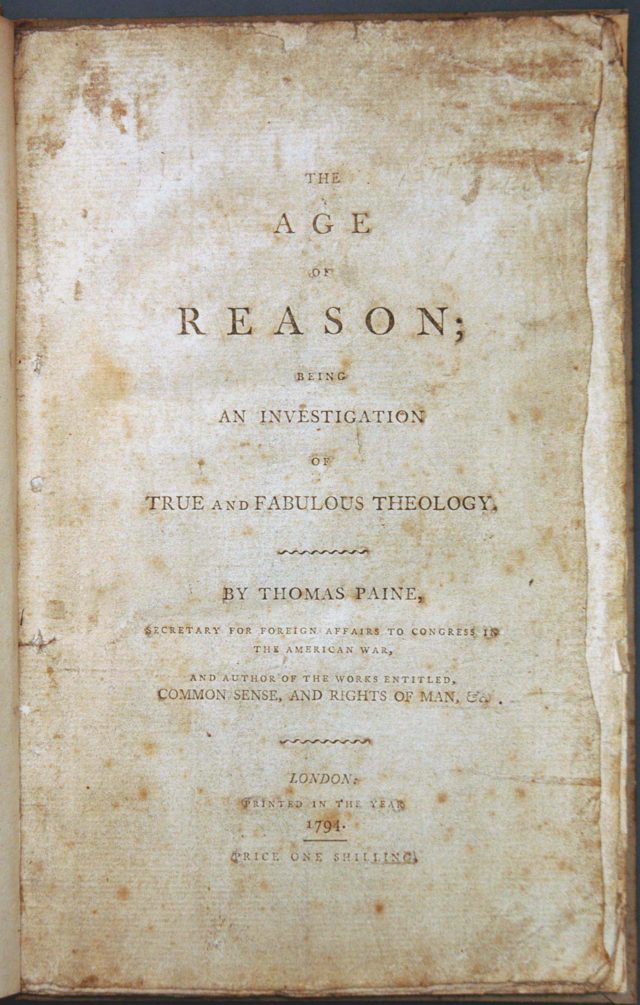 In his Age of Reason pamphlet (1807), Thomas Paine declared that “Persecution is not an original feature in any religion; but it is always the strongly marked feature of all religions established by law.“ Thomas Jefferson’s famed letter to the Danbury Baptist Association in Connecticut mentions how the First Amendment effectively establishes a “wall of separation between church and state.” These men, plus the many others that influenced or participated in the founding of the United States, were very familiar with the dangers of state religions and wished to prevent establishing such a religion in America.
In his Age of Reason pamphlet (1807), Thomas Paine declared that “Persecution is not an original feature in any religion; but it is always the strongly marked feature of all religions established by law.“ Thomas Jefferson’s famed letter to the Danbury Baptist Association in Connecticut mentions how the First Amendment effectively establishes a “wall of separation between church and state.” These men, plus the many others that influenced or participated in the founding of the United States, were very familiar with the dangers of state religions and wished to prevent establishing such a religion in America.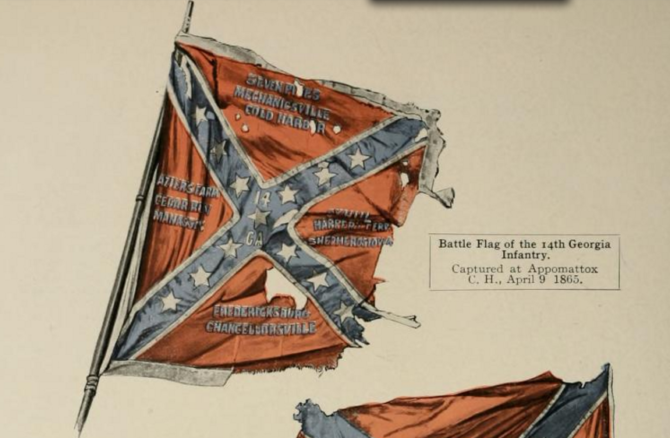 Compatriots, how do y’all seek to maintain alive the Confederate heritage within your family & relatives? This would be a great discussion point for any Sons of Confederate Camp or United Daughters of the Confederacy Chapter.
Compatriots, how do y’all seek to maintain alive the Confederate heritage within your family & relatives? This would be a great discussion point for any Sons of Confederate Camp or United Daughters of the Confederacy Chapter. 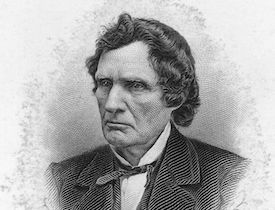
 Few realize that Florida was so committed to The War Between the States that she gave more soldiers to repel Northern invaders than she had registered voters. Gainesville was among the towns that responded. As a result, the local United Daughters of the Confederacy (UDC) chapter erected a statue of an ordinary infantryman in honor of the hometown boys who had fallen, including many buried anonymously far from home. When erected in 1904 most of the living veterans were in their sixties and seventies
Few realize that Florida was so committed to The War Between the States that she gave more soldiers to repel Northern invaders than she had registered voters. Gainesville was among the towns that responded. As a result, the local United Daughters of the Confederacy (UDC) chapter erected a statue of an ordinary infantryman in honor of the hometown boys who had fallen, including many buried anonymously far from home. When erected in 1904 most of the living veterans were in their sixties and seventies In the post-War between the States mythology supported by the victors, the Antebellum South was Satanic and subject to “slave power,” the alleged immense power of the plantation owners and their demonic desire to perpetuate slavery at all costs. This mythology goes further and claims that the War between the States was caused by slavery, with the North desiring to end slavery and the South desiring to increase its range by moving it into the territories. The North, it is alleged, accepted the Founding Fathers’s real vision for America while the South, with its outdated notion of “States’s Rights,” was poisoned by treason against the ideals of the American Founders.
In the post-War between the States mythology supported by the victors, the Antebellum South was Satanic and subject to “slave power,” the alleged immense power of the plantation owners and their demonic desire to perpetuate slavery at all costs. This mythology goes further and claims that the War between the States was caused by slavery, with the North desiring to end slavery and the South desiring to increase its range by moving it into the territories. The North, it is alleged, accepted the Founding Fathers’s real vision for America while the South, with its outdated notion of “States’s Rights,” was poisoned by treason against the ideals of the American Founders.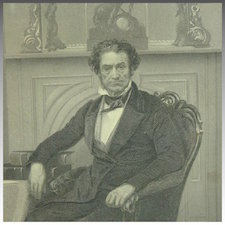 BOSTON, Mass., November 26, 1850
BOSTON, Mass., November 26, 1850